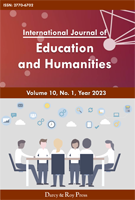Study of the Origins and Early Forms of Renaissance Opera
DOI:
https://doi.org/10.54097/5kw6am82Keywords:
Renaissance, Origins of Opera, Florentine Camerata, Early Opera Forms, MonteverdiAbstract
The Renaissance (14th-17th centuries) marked a crucial period in the transition of European culture and art from a "theocentric" to a "humanistic" approach. Opera, as a comprehensive art form integrating music, drama, literature, and visual arts, was not born by chance, but rather the result of the combined influence of social culture, artistic trends, and musical technology during this period. This article focuses on early Italian opera from the late 16th century to the 1620s. Through a review of literature and analysis of historical context, it explores the social and cultural drivers of opera's origins and the practical contributions of its core driving groups. It systematically analyzes the vocal forms, accompaniment characteristics, subject matter, and structural logic of early opera. Using representative works such as Monteverdi's "Orfeo" as case studies, it reconstructs the evolution of early opera from its "prototypical exploration" to its "formal maturity." Research has found that the humanistic ideologies of the Renaissance provided the theoretical basis for opera's "revival of classical tragedy." The rise of tonal music resolved the contradiction between polyphonic music and dramatic expression, while aristocratic patronage provided practical support for operatic creation. Early opera used recitative as its core vocal medium and basso continuo as its primary accompaniment. Its themes were often drawn from ancient Greek and Roman mythology. Although its form was not fully finalized, it laid the core framework for the commercialization and stylization of opera in the mid-to-late 17th century.
Downloads
References
[1] Liu Shengyu Revival tragedy? The Birth of Opera in the Italian Renaissance [J]. Music Research, 2025, (01): 142-160.
[2] Hill J W. Florence: Musical Spectacle and Drama, 1570–1650 [M] // The Early Baroque Era: From the Late Sixteenth Century to the 1660s. London: Palgrave Macmillan UK, 1993: 121-145.
[3] Solomon J. Apollo in Early Opera: Applying His Various Ancient Cult Functions to a Secular Renaissance Pantheon [J]. Studies in Greek and Roman Music, 2025, 13(1): 193-215.
[4] Lowinsky E E. Music in Renaissance Culture [J]. Journal of the History of Ideas, 1954: 509-553.
[5] Jiang Yimin. Re-understanding the Origin of Opera: Notes on the Study of Opera History [J]. Opera, 2015, (04): 58-61.
[6] Zhou Ling. Opera: A Product of the Renaissance Movement: On the Origin of Italian Opera [J]. Symphony. Journal of Xi'an Conservatory of Music, 1996, (01): 62-64.
Downloads
Published
Issue
Section
License
Copyright (c) 2025 International Journal of Education and Humanities

This work is licensed under a Creative Commons Attribution 4.0 International License.

















